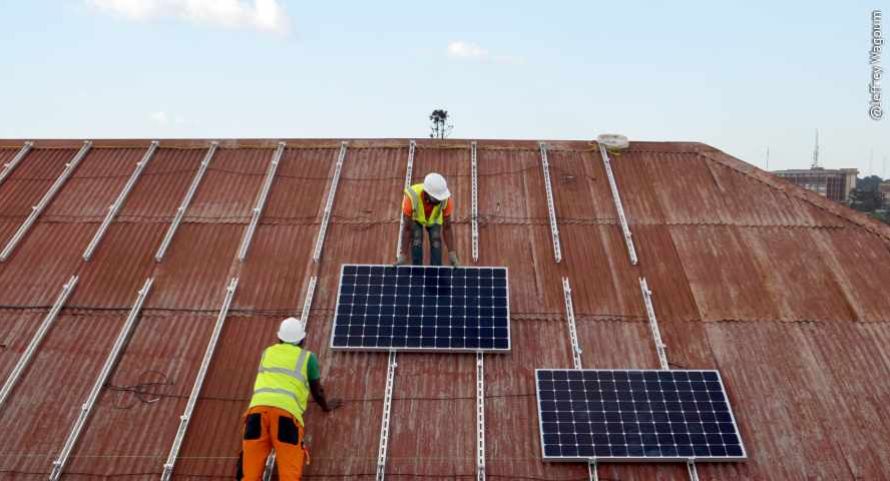Capturing CO2 savings and promoting investment in high-quality PV systems

The challenge
Renewable energies, especially photovoltaics (PV), are of great importance for the future energy supply of many African countries, including Cameroon. Off-grid PV systems can also electrify rural areas and thus create the basis for social and economic development.
Solar technology is now very well matured, and high-quality products exist for every need. However, the ecological footprint rarely plays a role in the purchasing decision – also because it is difficult to compare available model types and components. What is missing are calculation models that make visible both the CO2 footprint of the systems and their potential to save CO2 during operation. This would give investors and project developers the opportunity to take CO2 emissions into account when designing a plant and, if necessary, to generate funds with emission certificates. This would make it much easier to align PV systems with climate friendliness.
The goal
The Antenna Foundation project aims to establish a basis for the CO2 certification of private off-grid plants in order to allow them to participate in the Voluntary Carbon Market. For this purpose, data will first be collected and a model developed to evaluate the lifetime and (saved) CO2 emissions. A case study will then be used to test this model and compare it with existing models. Antenna Foundation intends to make the results available to organisations, investors and companies, so that they in turn can assess the CO2 relevance of projects.
Our partner
The Swiss Antenna Foundation has been involved in development cooperation for over 30 years. During this time, the foundation has developed, among other things, affordable photovoltaic applications, adapted business and financing models, and efficient distribution systems for renewable energies. In Cameroon, it works together with various partners, above all young scientists.
The approach
In order to be able to generate emission certificates with PV applications, both the buyers of the certificates and the investors need to know how much CO2 savings the installed systems can generate compared to the conventional power supply, for example compared to diesel generators or hydropower plants. Therefore, Antenna Foundation’s project pursues several goals that logically build on each other.
In the first step, the project aims to record the emissions of the various electricity sources. Based on these calculations, it is possible to calculate the CO2 footprint of PV projects.
However, there is a lack of a model that is practicable for local partners. The project aims to develop this model in the second step and to demonstrate its functionality in practice in the third step. This will be done in a case study for which at least ten technicians will be trained. This will encourage local partners to carry out this CO2 analysis automatically for each PV system. In the next step, the Antenna Foundation wants to determine for its own energy projects to what extent it can use the method to generate official and voluntary emission certificates and sell them on the market. The foundation wants to make all the results of the project available after its project so that the methods and effects can be disseminated as quickly as possible.
Cameroon
Climate protection and financing
Solar system operators and investors
03/2022 – 06/2023



